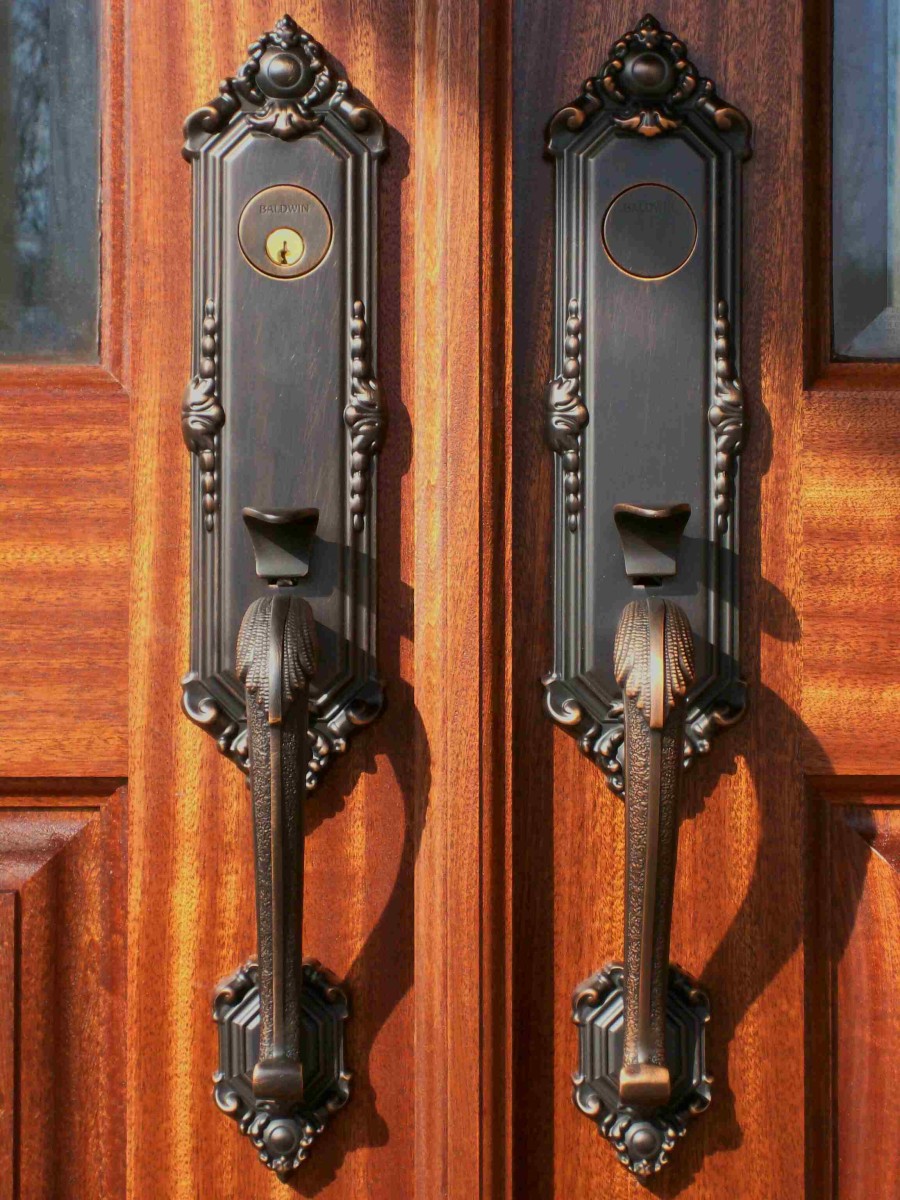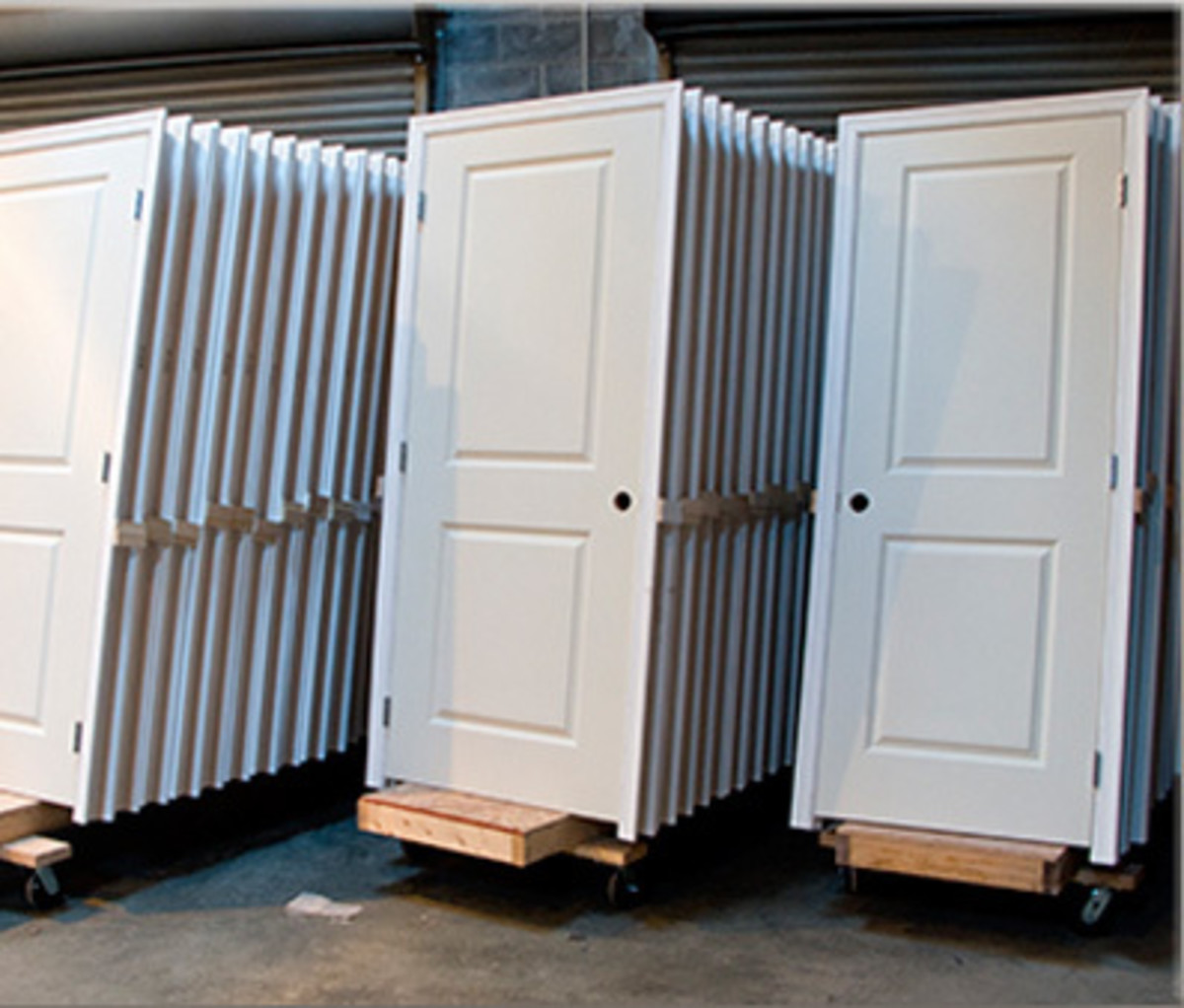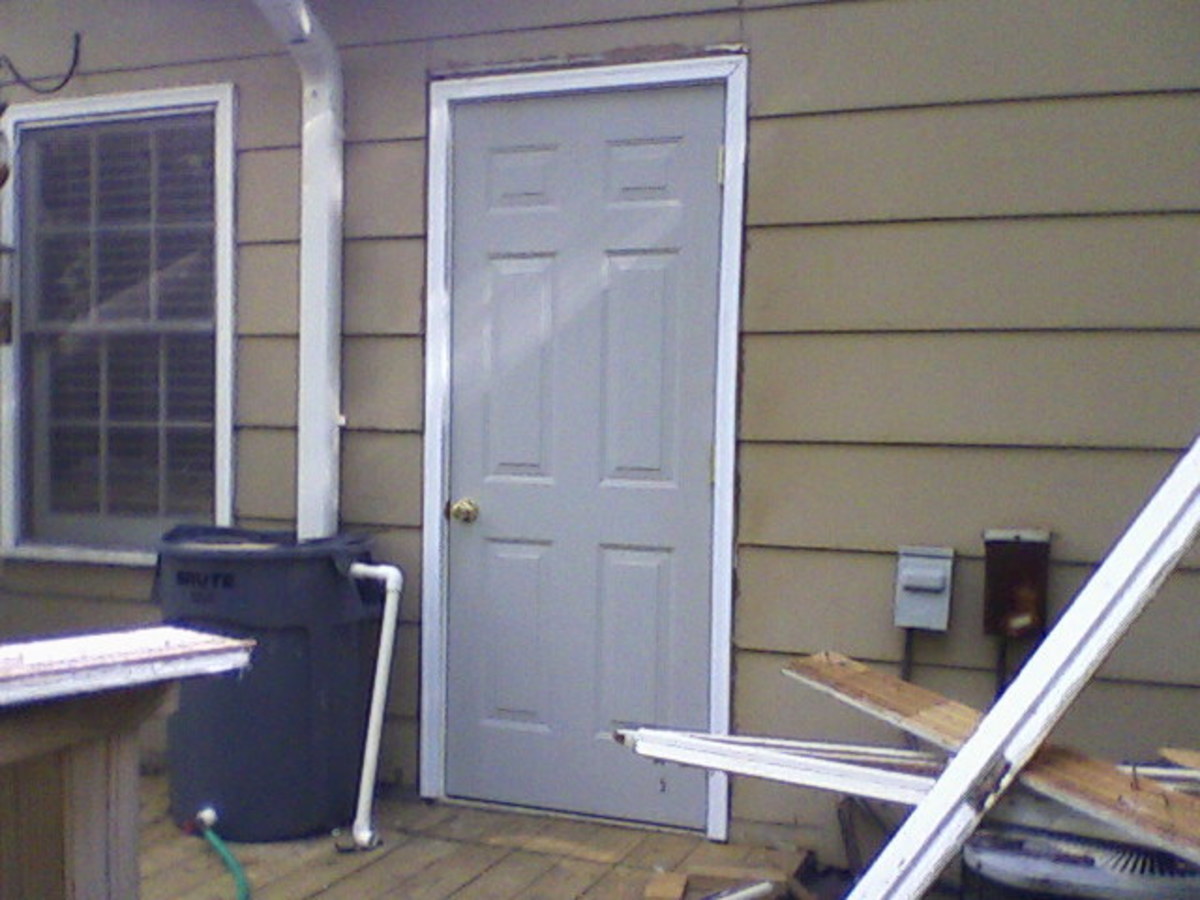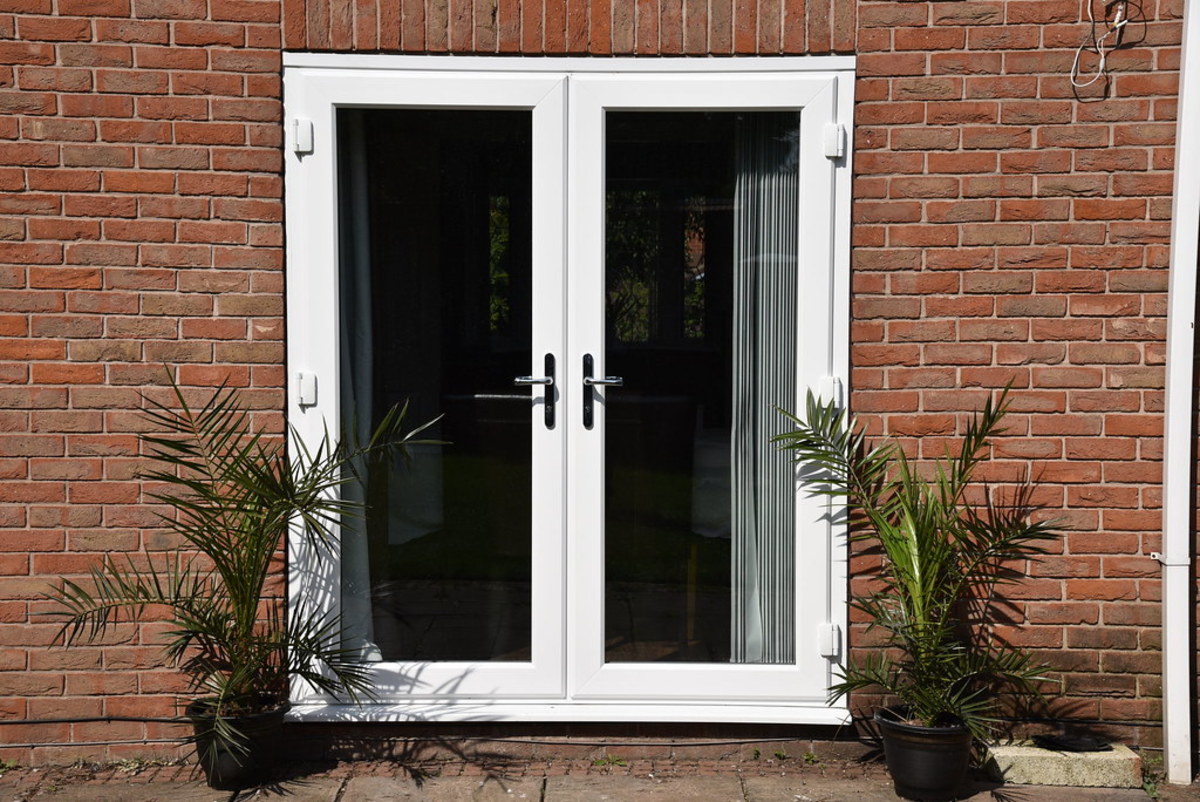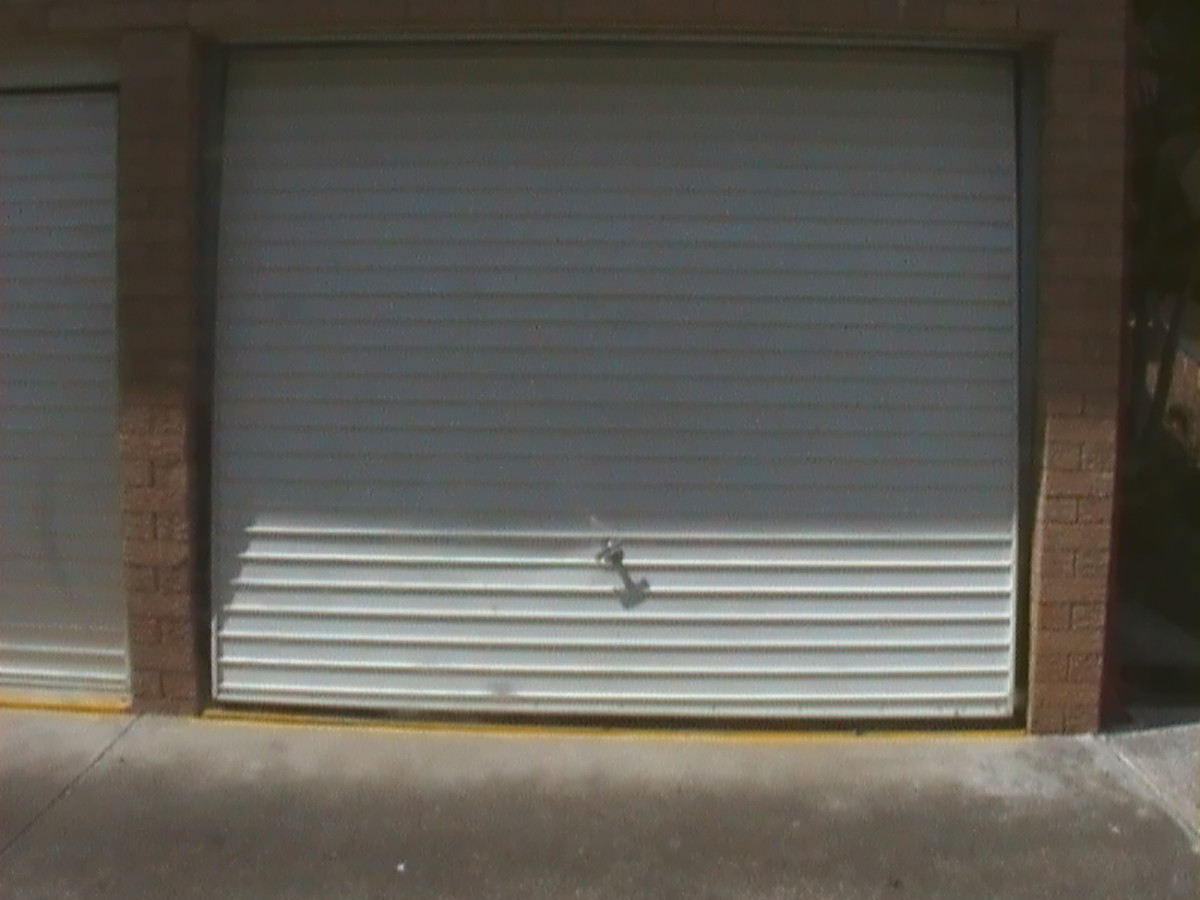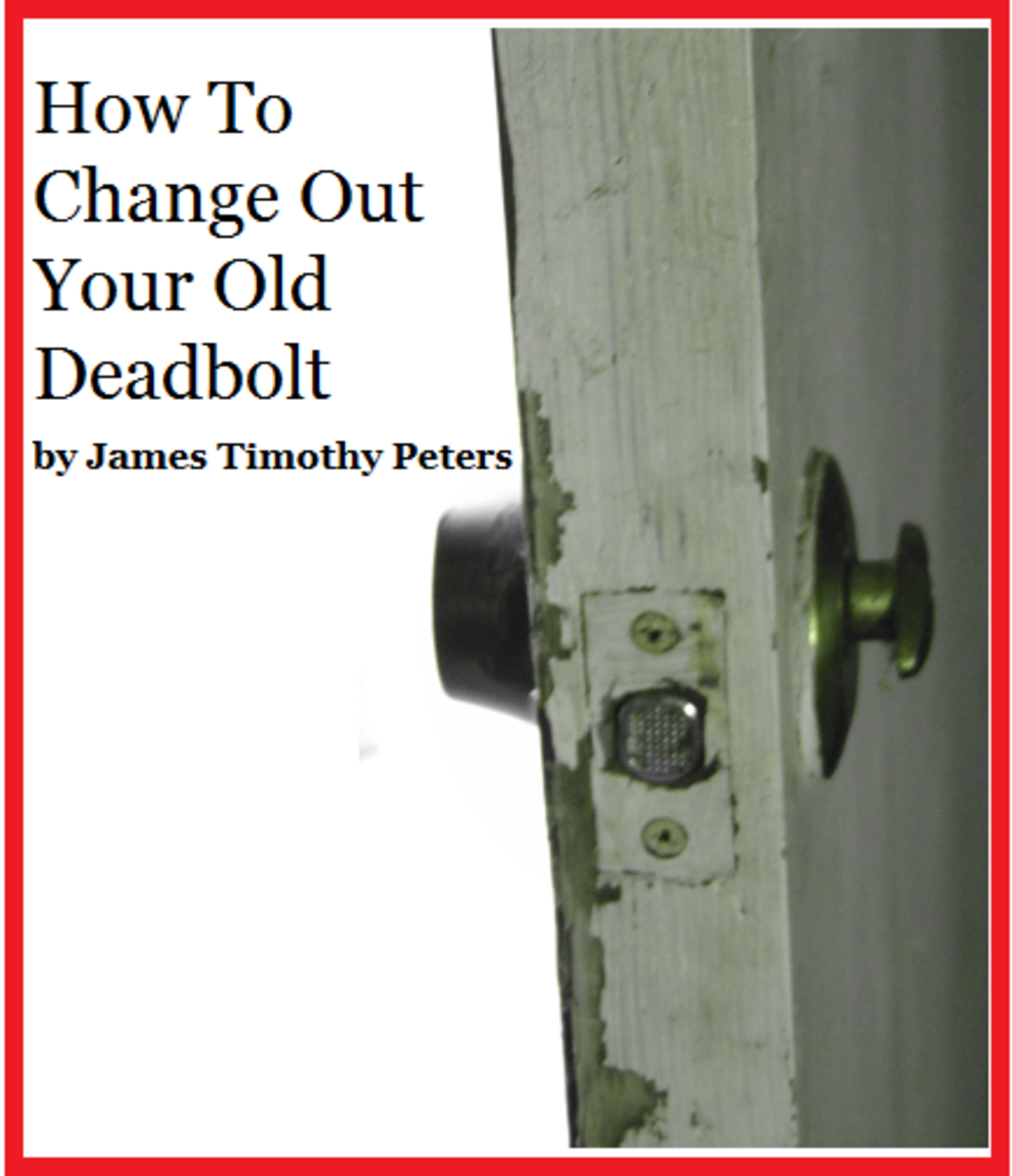Residential Lever Designs
This article provides a partial overview of residential grade cylindrical lever locks available on the market today.
In my experience as a locksmith, all residential levers are problematic in terms of longevity and reliability. In compliance with Newton's Law of Gravity, whatever goes up must come down, levers inevitably sag over time. They also break much more easily than knobs because of the much greater force exerted by the lever (because of leverage) on the mechanism than that which is exerted by a doorknob. Therefore I recommend avoiding levers in all residential applications in which ADA (American Disabilities Act) compliance is not an issue, for example, your own house.
Nevertheless it is also my experience as a Hardware Genius that residential levers are much more popular than doorknobs. They are easier to use (the original intent behind the design) and people find them more attractive. Go figure. Both knobs and levers look like door hardware to me.
One's choice of levers is divided pretty equally, it seems, between attempted quality and press-fit, robot-assembled stuff that is good for about 5 years or less given any use. Within these two choices there are some incremental choices - some low quality hardware is better than some other low quality hardware, for example. But the difference between the relatively cheap stuff and the levers designed and constructed with an attempt at quality workmanship is stark. The difference in price is also stark.
Following are some examples.
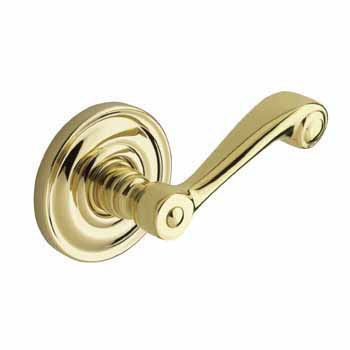
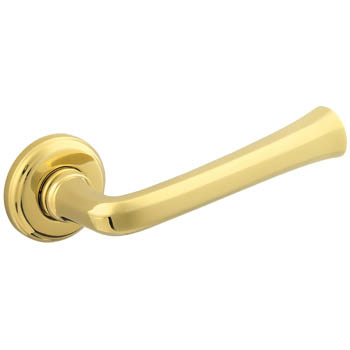

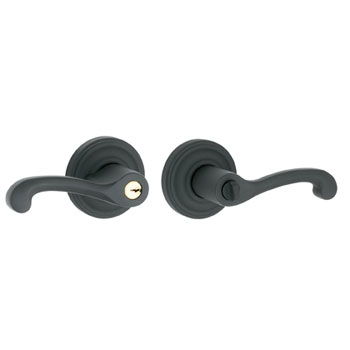
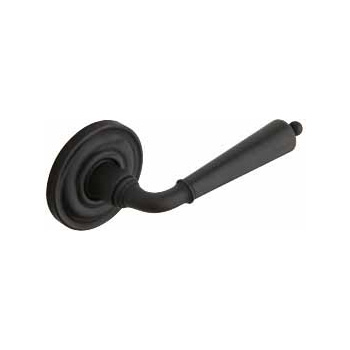
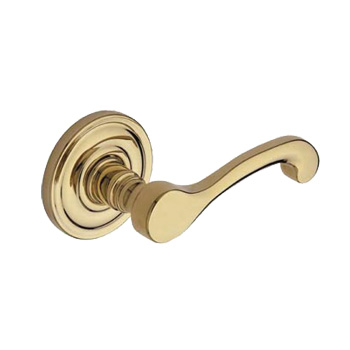
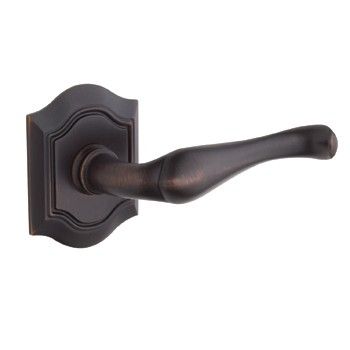
Baldwin Hardware
I found Baldwin Hardware levers to be the best made of those I worked with. As a locksmith, I found one of the main advantages to Baldwin Hardware products was the availability of replacement parts. To the consumer, this meant that one could repair their expensive passage set instead of replacing it. Another advantage was the precision in which the pieces were designed and manufactured. Baldwin levers fit together well without a lot of lateral "play" to cause wear, for example, between the lever and the rose. As I look at today's installation instructions, it appears these products continue to be manufactured with the same kind of precision.
Visually, the quality of the finish is very apparent to the discerning eye. The feel of the hardware is also superior - the smoothness of the finish, the strength of the spring, etc.
One of the disadvantages I found with Baldwin hardware was difficulty in installation, even for a professional, because of the precision required. Even if you can drill a perfectly straight hole, variables such as door bevel or minor thickness differences can make installation challenging. Another disadvantage is that Baldwin uses an old-fashioned spindle and set screw system to attach their levers. The set screws tend to loosen, causing the levers to droop. Homeowners are lazy about tightening them, so the next thing you know, the spindle is ruined as the users drag the set screw around the spindle, scoring irreparably. Even if you give them the hex wrench provided with the hardware and instruct them on how to use it, and the importance of keeping the set screws tight, it is a rare end user indeed who will take the time to actually tighten their set screws when they need it. Best, therefore, as a hardware dealer, to keep a good supply of spindles and set screws on hand for your customers who will doubtless need them.
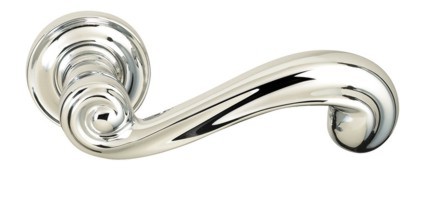
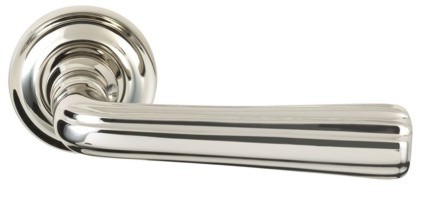
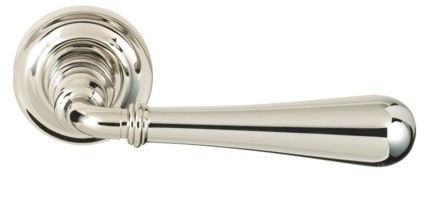

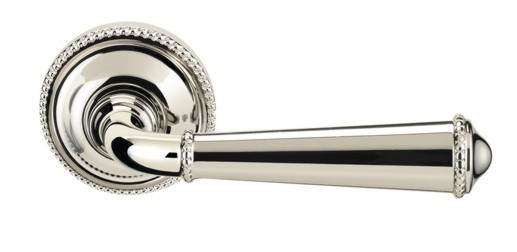
Omnia Industries
A slight step down from Baldwin Hardware in both price and quality is Omnia Industries, sample designs shown at right. Something Omnia offers that Baldwin does not is a wide variety of stainless steel designs. Most end users prefer a warmer look than stainless steel, but stainless steel is hard to beat for durability of finish. Otherwise, Omnia offers a wide variety of lever designs, a few of which are shown here.
Like Baldwin, Omnia uses a spindle and set screw design for lever attachment, therefore once again it is advisable for a hardware dealer to carry replacement spindles and set screws anticipating that they will wear out. (Set screws also have a tendency to get lost, of course, because they're small.)
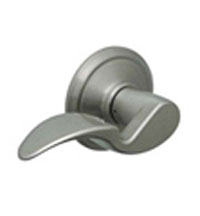
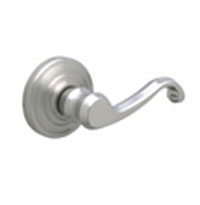
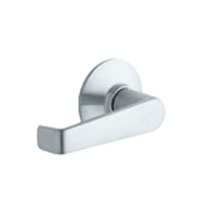
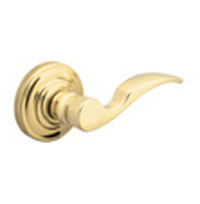
Schlage Lock Company
Schlage is probably the most famous lock company on the planet. Widely sold at stores like Home Depot (you may find Baldwin and/or Omnia at these places as well), Schlage enjoys almost universal name recognition with contractors, hardware installers and security professionals worldwide.
A few of Schlage's residential lever designs are shown at right.
Schlage's main business is security and architectural hardware for facilities like schools, hospitals and high rise office buildings for which they make high quality, grade one products. Schlage's residential division produces hardware that is much different than most of the architectural products offered by Schlage. Whereas Schlage's architectural products are replaceable, Schlage's residential products are pretty much disposable. It is reasonable to expect F series and FA series locks to have a lifespan of around five years.
The residential division of Schlage has grown over the years and now Schlage enjoys a good share of the residential market. Schlage residential products offer decent quality at a relatively reasonable price and very quick and easy installation on standard doors.
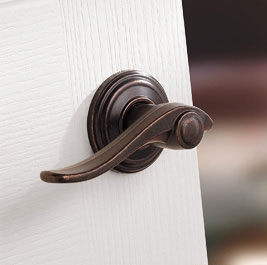
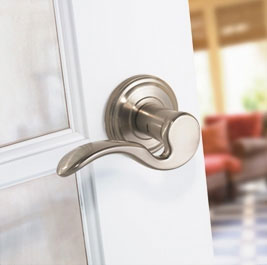

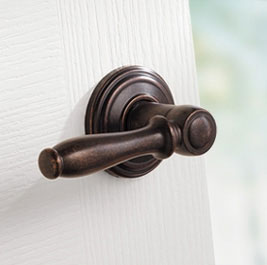
Kwikset
Kwikset has always specialized in residential lock sets and is widely used and respected by contractors across the United States and elsewhere. Widely available at lumber yards and other residential hardware outlets, Kwikset levers are very competitively prices and offer a number of attractive designs.
Like Schlage F and FA series, Kwikset levers offer quick and easy installation on standard doors. They produce a reasonably good installation for a relatively low price. Also, like the Schlage residential products, Kwikset levers are for the most part disposable rather than repairable, and it is reasonable to expect a lifespan of about five years out of one of their levers given moderate use in normal conditions.
There are many, many more manufacturers of residential levers and more come and go every year. The choice is whether to spend more money up front for a Baldwin or Omnia level product that will need periodic repair, but will likely last well over ten years in normal circumstances, or a Schlage Residential or Kwikset level product that will last around five years under normal conditions, after which you will throw it away and buy new.
I speak of normal conditions. None of the levers above is going to be any good at all for installation in a commercial, high frequency use application like an office building or a hospital. One could expect a residential lever to last less than a year in such an application. Similarly if you happen to have a door in your house that gets used 50 times a day, you might want to consider a less attractive but far more durable commercial lever to do the job.

